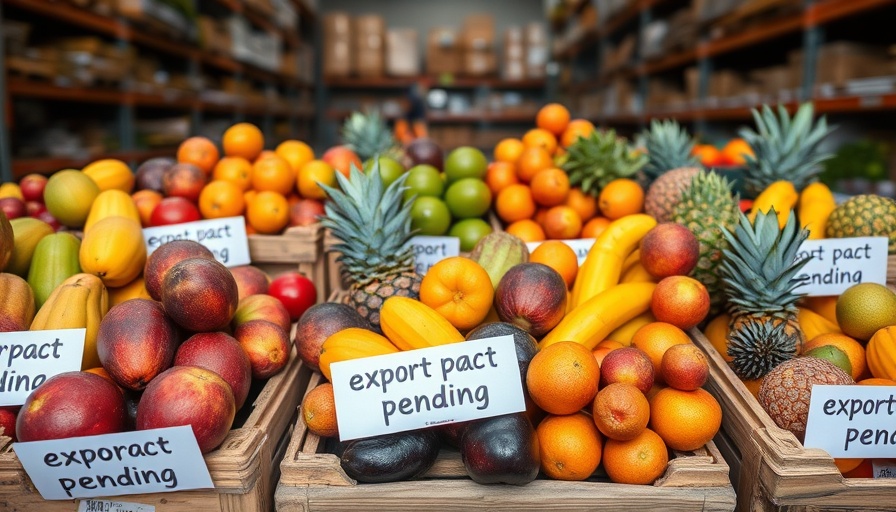
Bill Gates' Pledge: A Game Changer for Africa's Future
In a significant announcement made at the African Union headquarters in Addis Ababa, Ethiopia, Bill Gates declared his intention to invest most of his remarkable $200 billion fortune into enhancing health and education services across Africa. Gates emphasized that this investment aims to unleash the continent's human potential, which in turn could pave the way for prosperity in African nations.
In 'Bill Gates says most of his $200 billion fortune will go to Africa over next 20 years,' the discussion dives into philanthropy's role in transforming healthcare and education landscapes across Africa, prompting us to explore the implications of such significant investments.
A Vision for Prosperity through Health and Education
According to Gates, improving health and education is fundamental to catalyzing development across Africa. This approach aligns harmoniously with global efforts to meet the Sustainable Development Goals (SDGs), particularly those centered on health and education. The Microsoft co-founder remarked, "We must focus on unleashing human potential by going beyond conventional means to provide better access to healthcare and educational resources." He outlined how such initiatives should empower the continent's youth and emerging innovators.
Why Africa?
Gates' increased focus on Africa can be seen as a response to the continent's growing challenges and opportunities in the face of global developments. With a rapidly expanding population and a significant proportion of young people, Africa is in a unique position to harness technology such as artificial intelligence. Gates urged innovators to explore ways AI could enhance healthcare systems, diversify economies, and support sustainable development.
Implications for African Innovation and Entrepreneurship
The implications of Gates' investment strategy reach far beyond immediate funding. Investing in healthcare and education can cultivate a new generation of African entrepreneurs. By creating an ecosystem that fosters research and innovation, the groundwork is laid for technology-driven solutions that address pressing issues, such as healthcare accessibility, poverty alleviation, and educational inequity.
The Potential Impact of Artificial Intelligence
Gates' call to embrace artificial intelligence as a tool for transformation is particularly noteworthy. AI has demonstrated the potential to revolutionize various sectors, including healthcare, finance, and agriculture. As African governments and organizations strive to integrate AI, there's a significant opportunity to leapfrog outdated systems and provide innovative, scalable solutions tailored to local contexts.
A Call to Action for Policy Makers
For the vision outlined by Gates to materialize, a concerted effort from African governments is crucial. Policymakers must prioritize digital literacy, invest in infrastructure, and create conducive environments for tech startups and innovations. Aligning educational curricula with future job market demands is essential to equip young Africans to thrive in a digital economy.
Gates' Legacy: Philanthropy and Personal Accountability
Gates has openly committed to giving away 99% of his fortune by 2045—an unprecedented act that reflects his dedication to philanthropy and poses pertinent questions regarding wealth and responsibility. His statement that he wants to die having contributed positively rather than merely accumulating wealth resonates with a broader dialogue about corporate philanthropy's role in addressing systemic inequities.
Connecting Gates' Vision to Global Trends
Gates' speech comes at a time when Africa is at a crossroads, with both challenges and opportunities vividly on display. Economic empowerment, gender equality, and climate resilience are now recognized as integral to achieving lasting development. By prioritizing health and education funding, Gates sets a precedent for other leaders in the tech industry to engage with Africa proactively.
Conclusion: A New Dawn for African Development
As Gates champions a transformative future for Africa, the significance of his pledge cannot be understated. Anyone seeking to understand the development landscape in Africa must pay attention to both the investments and innovations that arise from this commitment. With a strategic focus on education and health bolstered by emerging technologies, we stand on the brink of an era where Africa's potential can be fully realized.
Take Action for Change
For those inspired by Gates' vision for Africa, consider how you can contribute. Support initiatives, engage with local innovators, or advocate for policies that foster sustainability and equality in education and health across the continent. Together, we can build a more prosperous future for Africa, inspiring generations to come.
 Add Row
Add Row  Add
Add 




Write A Comment